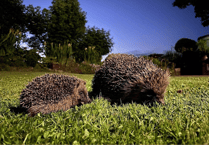Mums-to-be and parents of babies and children are being reminded to get their family members vaccinated to protect themselves and their child against whooping cough, as cases continue to rise across England. Whooping cough, clinically known as pertussis, is a bacterial infection which affects the lungs. The first signs of infection are similar to a cold, such as a runny nose and sore throat, but after about a week, the infection can develop into coughing bouts that last for a few minutes and are typically worse at night. Young babies may also make a distinctive “whoop” or have difficulty breathing after a bout of coughing. Vaccination against whooping cough during pregnancy ensures that young babies have the best protection from birth against this serious disease and expectant parents should speak to their midwife if they have concerns. Matt Peace, Herefordshire’s Director of Public Health, said: “With whooping cough on the rise, it is important that families come forward to get the protection they need. “Whooping cough can affect people of all ages but for very young infants, it can be particularly serious. However, vaccinating pregnant women is highly effective in protecting babies from birth until they can receive their own vaccines. Parents can also help protect their children by ensuring they receive their vaccines at the right time or catching up as soon as possible if they have missed any. If you’re unsure, please check your child’s red book or get in touch with your GP surgery. “If you are pregnant and have not been vaccinated yet, or your child is not up-to-date with whooping cough or other routine vaccinations, please contact your GP as soon as possible, and if you or your child have symptoms ask for an urgent GP appointment or get help from NHS 111. “If anyone in your family is diagnosed with whooping cough, it’s important they stay at home and do not go into work, school or nursery until 48 hours after starting antibiotics, or three weeks after symptoms start if they have not had antibiotics. This helps to prevent the spread of infection, especially to vulnerable groups. However, vaccination remains the best protection for babies and children.”





Comments
This article has no comments yet. Be the first to leave a comment.